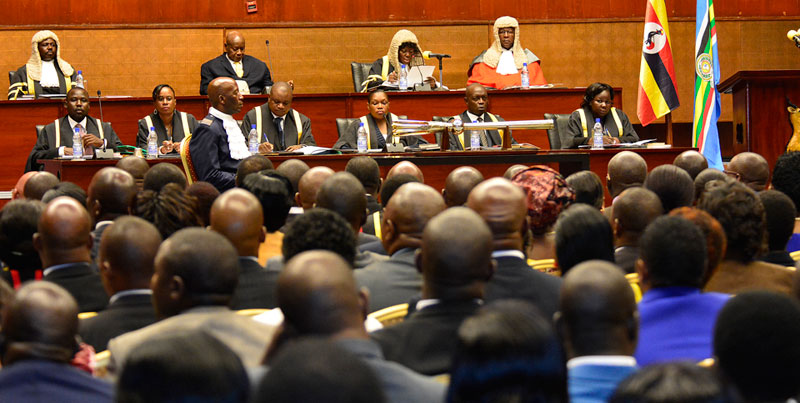Corporate
How committees help Parliament work with the public
FOCUS ON PARLIAMENT
The business that the Parliament of Uganda conducts is so wide-ranging and complex that it would be practically impossible for the heavy tasks to be effectively handled if Members of Parliament were not spread across various committees.
Each MP belongs to at least one committee, although a Member can attend and help enrich discussion in many of the committees where he/she may feel that the subject of discussion in the committee in question would benefit from his/her expertise or experience.
The sheer number of MPs, now numbering over 450 and set to rise further, means that it is difficult for any particular subject to be effectively discussed by all the members. The idea of the committee system, therefore, is to enable a smaller group of MPs to first closely study a particular issue and make a report before the whole House, which in some instances is sometimes referred to as the Committee of the Full House or the Committee of Supply, discusses the matter.
As the different committees scrutinize whatever issues may be brought before them, members of the public have an opportunity to appear before the committees and feed their input into the discussion before the matter is tabled before the full House. This is an important way of getting the members of the public to be included in legislative work, for without the committee system, members of the public would not be able to present their views to the full House.
Also, the committees offer the members of the general public an opportunity to further participate in parlimentary work through considering petitions from members of the public. From time to time, aggrieved members of the public may petition Parliament to intervene in any given matter. In such cases, the Speaker assigns the relevant committee to scrutinise the petition and recommend how Parliament may handle the matter at hand.
Broadly speaking, the committees are divided into standing committees and sectoral committees. Sectoral committees are derived from the different sectors, like Finance, Health and Foreign Affairs, and their composition is determined at the start of each new session.
On the other hand, Standing Committees are set up at the start of a new term of Parliament to work for a period of two and half years.
Sectoral Committees last one session (one year) and each committee comprises about 30 members designated by Whips and approved by the House.
In order to simplify the work of Parliament, there is almost a committee to handle every major issue that the country has to contend with. The naming of the committees of Parliament ordinarily follows the duties a particular committee handles, such that on reading the name of a committee, one will be able to tell what that particular committee does.
Standing Committees
Standing committees include the Budget Committee, Committee on National Economy, Committee on Science and Technology, Committee on HIV/AIDS and Related Diseases, Committee on Equal Opportunities, Committee on Human Rights, and the Committee on Rules, Discipline and Privileges.
The four accountability committees – the Public Accounts Committee, the Local Government Accounts Committee, the Committee on Commissions, State Authorities and State Enterprises, and the Committee on Government Assurance – are also standing committees.
The four accountability committees are meant to ensure that Government Ministries, Departments and Agencies (MDAs) utilise the resources allocated to them efficiently, and that they do so according to the laws of Uganda. Because of their oversight functions, the law requires that the chairpersons and deputies of these accountability committees are Members of the Opposition. The idea is to strengthen the Opposition’s oversight role over the working of Government.
The Business Committee and the Appointments Committee are also standing committees of Parliament. The Business Committee is responsible for determining how Parliament does its work and in what order, while the Appointments Committee is responsible for vetting the Presidential appointments which are subject to vetting by Parliament. Both committees are chaired by the Speaker, deputised by the Deputy Speaker.
Sectoral committees
The sectoral committees include the Committee on Finance, Planning AND Economic Development, the Committee on Health, Committee on Foreign Affairs, Committee on Natural Resources, Committee on Presidential Affairs, Committee on Defence and Internal Affairs, and the Committee on Physical Infrastructure.
The other sectoral committees are the Committee on Public Service and Local Government, Committee on Education and Sports, Committee on Agriculture, Committee on Gender, Labour and Social Development, Committee on East African Community Affairs, Committee on Trade, Tourism and Industry, Committee on Legal and Parliamentary Affairs, and the Committee on Information Communication and Technology.
Comments



















